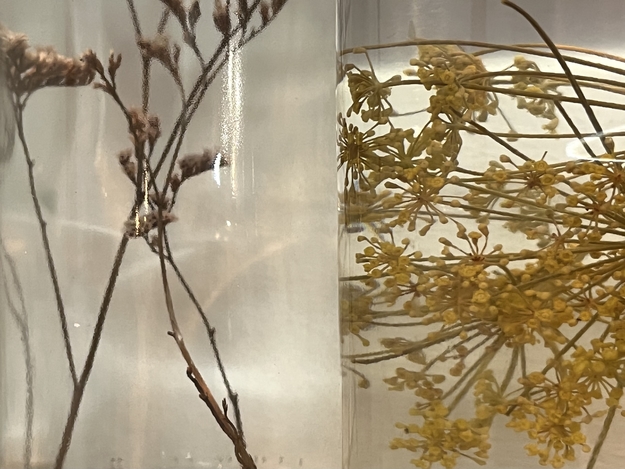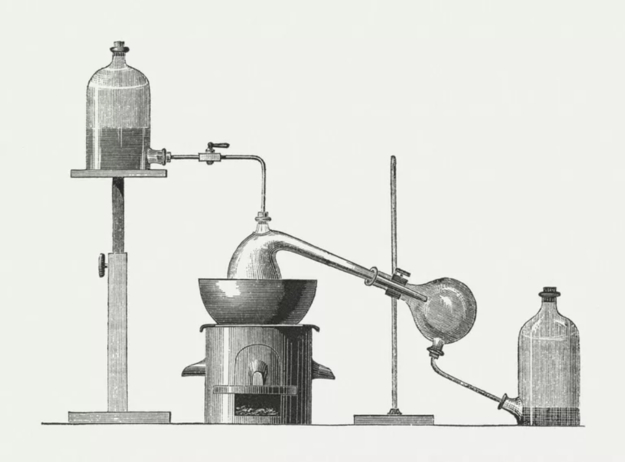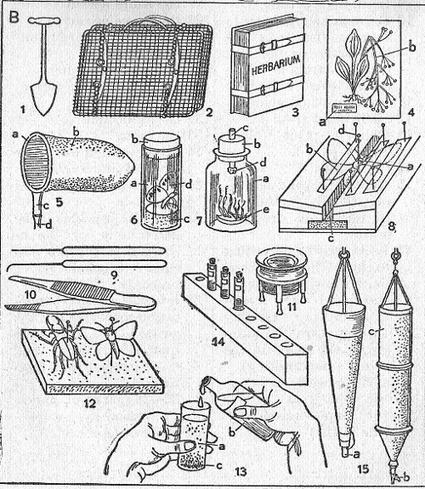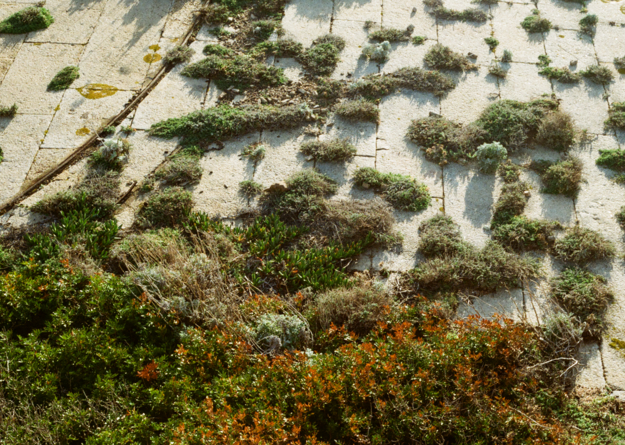Project description
I am interested in researching different forms of caring and healing, through an eco-feminist lens. My land of origin, Sardinia, has ignited my fascination for alchemy, witchcraft and herbalism that characterise part of the culture of the island. I’d like to integrate these practices in developing a project of distillation of a territory. In order to preserve this botanic patrimony – which we're losing knowledge about and that is also physically endangered by wildfires and climate change – I'd like to employ scientific-like approach and make a selection of a few of its forgotten, overlooked, yet interesting and fascinating plants, worthy of re-discovery. By altering and transforming them into elixirs, the liquid herbarium thus formed – making plants drinkable, tastable, smellable, and their healing properties readily available – could facilitate an immersive experience and new-found connection and care for the maquis. The elixir-making method is to be better defined through experimentation, considering distillation, fermentation, maceration or other methods, interesting because they are reminiscent of scientific processes, but also of alchemy and witchcraft, and they are involved in many practices with cultural or curative significance.
Possible ways to expand the project
A great expansion of this project would be its integration with the spaces, cultural offer and research already being done at Mediamatic. It would be stimulating and interesting to organise a workshop at Mediamatic for the production and fruition of a new liquid herbarium, using plants local to Amsterdam (probably possible thanks to the selection of local medicinal plants already part of the Biotope’s Garden plan and the equipment available at the Aroma Lab and Bio Clean Lab). The workshop could represent and become a new ritual, a collective ritual of healing, through the caring act of transmission of botanical knowledge and cures.
Personal introduction
I am a soon-to-be MA graduate in Visual Arts at IUAV, Venice. In my practice and research I am interested in exploring active and affectionate relationships with nature, the environment and the territory, with an awareness of current ecological complexities and fragilities. Lately I have been investigating the science and the art(s) of healing, with a focus on the potential and many aspects of care/cure.
For this project I envision hybrid collaborations with people who hold different types of knowledge that could enrich the research: from Chemists or Botanists who hold a science-based type of knowledge, to people who hold non-codified, embodied or orally transmitted knowledge about the territory and its fragilities and resources.
Estimated costs
Since the elixir-making methods would have to be defined through experimentation, it’s quite hard to give a precise estimate of the costs. The budget could fluctuate quite a lot depending on the chosen method and on the equipment needed (or on the eventuality of being able to access equipment already available at Mediamatic). A gross estimate could be of 3000 €, considering 800-1000 € just for the traveling expenses to conduct in situ research and foraging of the plants.
This proposal is part of the 'Penny for your Thoughts' project 2022.



